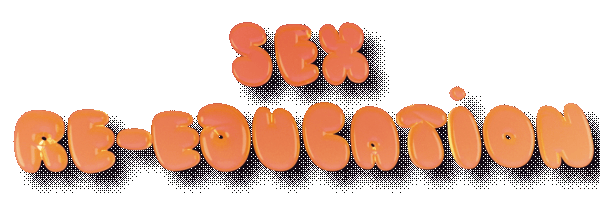How I’m Unlearning My Shame About Sex — One Orgasm At A Time
I don’t remember the first time I felt tingles “down there.” It may have been watching Marlena and John hooking up on Days of Our Lives, which my mother and I tuned into every afternoon after she picked me up from school. It may have been when I snuck a glimpse at the sexy scenes in one of the Danielle Steel novels stacked on her nightstand next to her glasses and hand lotion. It may have been making my Barbies kiss and rub their plastic pelvises together.
But I do remember the first time I told someone about that strange, definitely not unpleasant feeling beneath my belly button. I was five or six and at a family barbecue when I confided to my aunt and my mother that watching people kissing made my vagina feel funny. My aunt joked that my parents would have to keep an eye on me as I got older and my mother hugged me and laughed in that confusing way that adults do. All I could think was: Is there something wrong with those little pulses? And: I better not talk about them to anyone ever again.
AdvertisementADVERTISEMENT
That feeling, I know now, was shame. So many of us have been taught to feel this way about sex. Society’s moralising of sexual pleasure has a way of sticking with you, even when you don’t realise you’re taking it in. Which we do, all the time — at home, at school, on our screens, in a bar, on the train. And I say this recognising the inherent privilege of my sexual coming of age: I’m a cis straight white woman. Anyone who exists outside the arbitrary lines of sexuality that have been drawn for us is likely to question themselves that much more. Unlearning that shame — where it comes from, where you’re holding it tightly inside you — can take a lifetime.
It has for me.
I wanted to embrace those tingles. In school, like most teens, I was hornier than a Sally Rooney novel. I spent a lot of time “reading” dirty novels while pretending, like the rest of my friends, that masturbation was gross and something only boys did. I definitely wasn’t saving myself (my parents were pretty liberal despite their own sexual hangups) and yet my sex life was nonexistent. I didn’t have my first kiss until I was 17. I lost my virginity at 23. I can’t say if my reticence was entirely a result of my feelings of shame around sex (I was also struggling with a pretty intense, undiagnosed anxiety disorder in my teens) but I know that I wanted to and wished to be intimate with someone, and something was holding me back.
AdvertisementADVERTISEMENT
I didn’t want to be the girl who gave it up; I felt that I should be in love and in a relationship to enjoy sexual pleasure. I had the stifling notion that my sexual awakening should live up to something I’d read about or watched or seen play out in the cafeteria. When I did start having sex, it was fun, sure, but often I had trouble climaxing; sometimes I still struggle with it. My orgasms have always been private, done alone and under the covers. For a long time, letting go in front of someone else felt impossible. Nice girls don’t (publicly) enjoy sex, after all.
As a former health editor, I’ve read and written a ton about sex and pleasure and, ever an A+ student, I’ve tried to apply everything I’ve soaked up to my hesitancies around pleasure. My biggest breakthrough came a few years ago when I went to see a sex therapist for a one-time session. I remember the sense of relief when she reaffirmed that everything I was feeling was normal. She also reminded me that retraining the way our brain functions around anxiety and sex and shame takes time and work. Just hearing that was enough to lighten some of the pressure I’d been carrying around for years.
Now, I’m learning to find pleasure from sex from start to finish. I know what will get me off and what definitely won’t (stop spending so much time on my damn nipples!). Most importantly, I’m not afraid or embarrassed to kick my partner out of the room, close the door and take matters into my own hands.
AdvertisementADVERTISEMENT
I’m trying to be kind to my eight-year-old self and I’ve been watching other people celebrate this agency too. Even TikTok has made me feel less alone, (armrest of the couch meme, anyone?) hearing from others who have experienced the same things and are also muddling their way through, one baby step at a time, sometimes taking a step forward, sometimes taking two steps back.
After all, we are all works in progress and that’s okay too. When my parents moved out of my childhood home recently, I came to help them and my father and I were packing up my bookshelf and found the stack of dirty books I’d hidden behind my French textbooks and Harry Potter collection. I resisted the urge to run from the room and find a new identity. Instead I paused and said calmly: “It’s natural.”
Like I said, baby steps.
Want more? Get Refinery29 Australia’s best stories delivered to your inbox each week. Sign up here!
AdvertisementADVERTISEMENT







